Carlo Fierens - Napoléon Coste: Complete Guitar Works, Vol. 3 - Le livre d'or du Guitariste (2022)
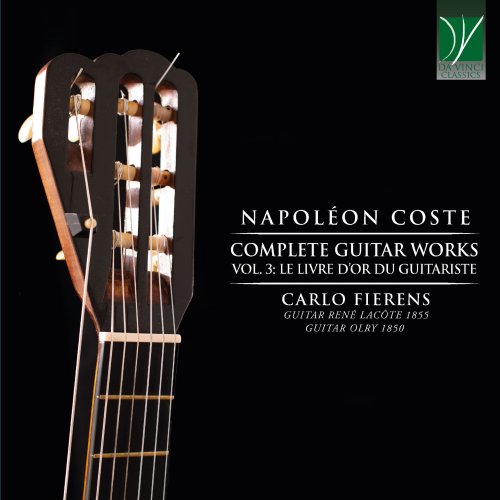
Artist: Carlo Fierens
Title: Napoléon Coste: Complete Guitar Works, Vol. 3 - Le livre d'or du Guitariste
Year Of Release: 2022
Label: Da Vinci Classics
Genre: Classical Guitar
Quality: flac lossless (tracks)
Total Time: 00:59:49
Total Size: 246 mb
WebSite: Album Preview
TracklistTitle: Napoléon Coste: Complete Guitar Works, Vol. 3 - Le livre d'or du Guitariste
Year Of Release: 2022
Label: Da Vinci Classics
Genre: Classical Guitar
Quality: flac lossless (tracks)
Total Time: 00:59:49
Total Size: 246 mb
WebSite: Album Preview
01. Le livre d'or du Guitariste, Op. 52: No. 1, Villanelle (16th century)
02. Le livre d'or du Guitariste, Op. 52: No. 2, Les Moissonneurs (Couperin)
03. Le livre d'or du Guitariste, Op. 52: No. 3, Charmante Gabrielle (Ducaurroy, 16th century)
04. Le livre d'or du Guitariste, Op. 52: No. 4, Gigue (Robert de Visée)
05. Le livre d'or du Guitariste, Op. 52: No. 5, Gavotte (Robert de Visée)
06. Le livre d'or du Guitariste, Op. 52: No. 6, Sarabande (Robert de Visée)
07. Le livre d'or du Guitariste, Op. 52: No. 7, Allemande (Robert de Visée)
08. Le livre d'or du Guitariste, Op. 52: No. 8, Gigue (Robert de Visée)
09. Le livre d'or du Guitariste, Op. 52: No. 9, Courante (Robert de Visée)
10. Le livre d'or du Guitariste, Op. 52: No. 10, Menuet (Robert de Visée)
11. Le livre d'or du Guitariste, Op. 52: No. 11, Gigue (Robert de Visée)
12. Le livre d'or du Guitariste, Op. 52: No. 12, Passacaille (Robert de Visée)
13. Le livre d'or du Guitariste, Op. 52: No. 13, Adagio (Mozart)
14. Le livre d'or du Guitariste, Op. 52: No. 14, Andante (Haydn)
15. Le livre d'or du Guitariste, Op. 52: No. 15, Menuet d'Exaudet (17th century)
16. Le livre d'or du Guitariste, Op. 52: No. 16, Chanson d'Adam Billaut
17. Le livre d'or du Guitariste, Op. 52: No. 17, Airs Suédois
18. Le livre d'or du Guitariste, Op. 52: No. 18, Chant National Autrichien (Haydn)
19. Le livre d'or du Guitariste, Op. 52: No. 19, Andante (Haydn)
20. Le livre d'or du Guitariste, Op. 52: No. 20, Chœr de Judas Machabé (Haendel)
21. Le livre d'or du Guitariste, Op. 52: No. 21, J'ai perdu mon Eurydice (Orpée, Gluck)
22. Le livre d'or du Guitariste, Op. 52: No. 22, Andante (Mozart)
23. Le livre d'or du Guitariste, Op. 52: No. 23, Extrait de la 8.e Sonate (Beethoven)
24. Le livre d'or du Guitariste, Op. 52: No. 24, Menuet du Septuor (Beethoven)
25. Le livre d'or du Guitariste, Op. 52: No. 25, Andante du Septuor (Beethoven)
26. Le livre d'or du Guitariste, Op. 52: No. 26, Andante et 1.re var. de la 12.e Sonate (Beethoven)
27. Le livre d'or du Guitariste, Op. 52: No. 27, Mio caro adone (Mozart)
28. Le livre d'or du Guitariste, Op. 52: No. 28, (27bis) Air Suédois
29. Le livre d'or du Guitariste, Op. 52: No. 29, Menuet de la Sonate No.1 (Beethoven)
30. Le livre d'or du Guitariste, Op. 52: No. 30, Andante de la 10.e Sonate (Beethoven)
31. Le livre d'or du Guitariste, Op. 52: No. 31, Minuetto (Haydn)
32. Le livre d'or du Guitariste, Op. 52: No. 32, Fragment de la 15.e Sonate (Beethoven)
33. Le livre d'or du Guitariste, Op. 52: No. 33, Preciosa (Mélodie de Weber)
34. Le livre d'or du Guitariste, Op. 52: No. 34, Valse (Beethoven)
35. Le livre d'or du Guitariste, Op. 52: No. 35, God save the Queen (Haendel)
36. Le livre d'or du Guitariste, Op. 52: No. 36, Marche Royale Espagnole
37. Le livre d'or du Guitariste, Op. 52: No. 37, L'Elisir d'Amore (Transcription libre, Donizetti)
38. Le livre d'or du Guitariste, Op. 52: No. 38, Valse (Beethoven)
39. Valse des Roses
40. Six pièces par Robert de Visée: No. 1, Minuetto (From Méthode complète pour la Guitare)
41. Six pièces par Robert de Visée: No. 2, Bourrée (From Méthode complète pour la Guitare)
42. Six pièces par Robert de Visée: No. 3, Minuetto (From Méthode complète pour la Guitare)
43. Six pièces par Robert de Visée: No. 4, Sarabande (From Méthode complète pour la Guitare)
44. Six pièces par Robert de Visée: No. 5, Gavotte (From Méthode complète pour la Guitare)
45. Six pièces par Robert de Visée: No. 6, Minuetto (From Méthode complète pour la Guitare)
Napoléon Coste was born on the 27th of June 1805 in Amondans in the department of Doubs in eastern France, a date that was not established until 1982. He grew up in the neighbourhood of Ornans, to which he later dedicated several compositions. In 1813 he was in the Dutch town of Delfzijl with his father, a captain in the French army, he passed the Zuiderzee and crossed the river Rhine. The memory of these places returned in his compositions, the Souvenirs. He started his career as a guitarist in 1826 in Valenciennes, where he lived as a youth, began to compose, and played in a concert with the travelling virtuoso Sagrini. At the end of 1828 he settled in Paris, where he stayed for almost the rest of his artistic career. There, in the centre of important musical developments, he joined the circles of musicians who originated from Valenciennes, and also of famous guitarists, among whom Sor became of great importance to him, as he studied harmony and counterpoint with him and became his friend, joining him in concerts. His life in Paris is expressed in several programmatic compositions, after Berlioz’ invention of musical drama.
He developed his artistic talent, participated in mixed concerts, where he played his own compositions, most of which were published by well-known publishers or by himself, chez l’auteur. His performance and compositions were praised in the upcoming musical journals of the time, but the guitar as an instrument was generally disdained, in such a way that it eventually disappeared from the musical scene during his lifetime. When Coste came to Paris, the guitar was very popular and was played at a high level, as can be seen in the many guitar methods of the time. But the instrument became popular among amateurs mostly, causing more artistic compositions to become difficult to publish. Therefore, Coste composed and arranged much popular music for pedagogical and commercial purpose. As a guitar teacher he has many pupils and he made a revision of Sor’s method in 1851, one of the last methods published in Paris, known as the Méthode Coste-Sor. He entered upper class musical society upon joining the Société académique des Enfants d’Apollon in 1841 and the musical freemasons’ lodge Les Frères Unis Inséparables in 1843, where he gave concerts on his heptacorde, the seven-string guitar made for him by the luthier Lacôte. Many of his compositions were meant for this instrument. The recordings of this compact disc are performed by Carlo Fierens on an original heptacorde made by René Lacôte in 1855, which matches the very same heptacorde Coste designed. His fame reached international level and he was visited in Paris by admirers from Stockholm, Copenhagen, Riga, and St. Petersburg. In 1856 the Russian guitar-playing nobleman Makaroff opened a contest for guitar composition and construction in Brussels. Coste sent in five compositions, out of which his Grande Sérénade opus 30 won second prize, coming in after Mertz’s Concertino. He made no use of this laureate to travel through Europe as a guitar virtuoso, but returned to Paris, and also, to his own regret, to the job he had as an administrator at the municipality, from which he was pensioned in 1875. He had fewer pupils, had to publish his works by himself, and moreover injured his left shoulder twice, first in 1863, then again in 1874, but nevertheless he continued to perform in concerts.
His Éudes de Genre opus 38 were published by Richault c. 1872 and were dedicated to many of his pupils, among them Louise Olive Pauilhé, who he married in 1871, during the Prussian occupation of Paris. In his last years he still composed masterpieces as before, but also more didactic and easy pieces, which nevertheless are fine examples of his Romantic style. He died on 14 January 1883. His works were collected by admirers but disappeared from the concert repertoire. Only a few of his studies remained well known among guitarists, until Simon Wynberg publishes his complete works in 1981, opening up new attention for his oeuvre, that appears more and more in concert life since that time. This is becoming evident in the present series of recordings by Carlo Fierens...
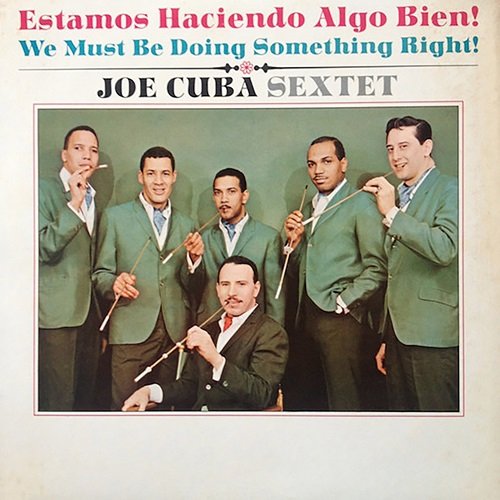
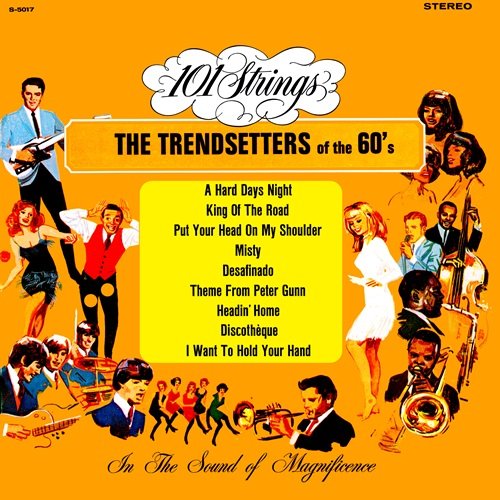
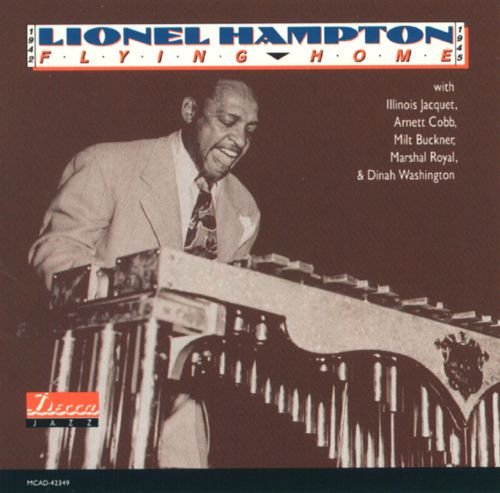
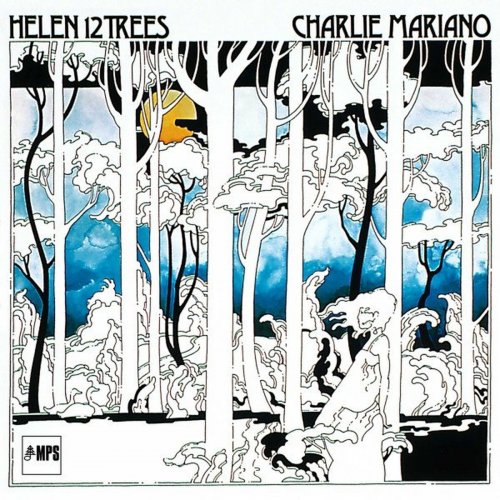
![The Dave Brubeck Quartet - Time Out (1959) [2022 DSD256] The Dave Brubeck Quartet - Time Out (1959) [2022 DSD256]](https://www.dibpic.com/uploads/posts/2026-01/1769324559_folder.jpg)
![Nicolas Collins & Birgit Ulher - Spark Gap (2026) [Hi-Res] Nicolas Collins & Birgit Ulher - Spark Gap (2026) [Hi-Res]](https://www.dibpic.com/uploads/posts/2026-01/1769148924_vicc2td18xrvc_600.jpg)
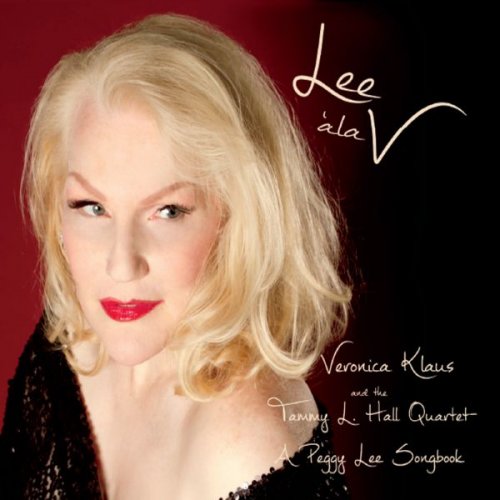
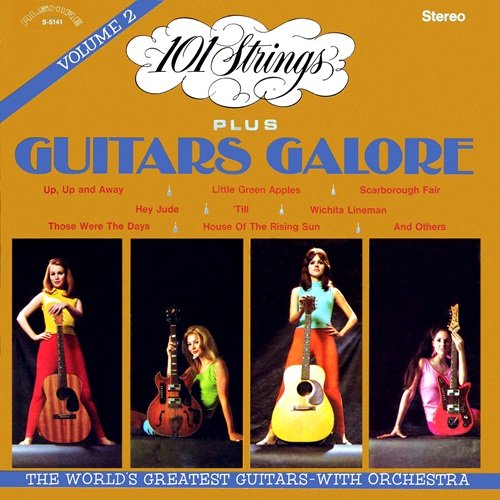
![NDR Bigband - Talking to Béla (2026) [Hi-Res] NDR Bigband - Talking to Béla (2026) [Hi-Res]](https://www.dibpic.com/uploads/posts/2026-01/1769085002_u7lizm4pfqjcu_600.jpg)